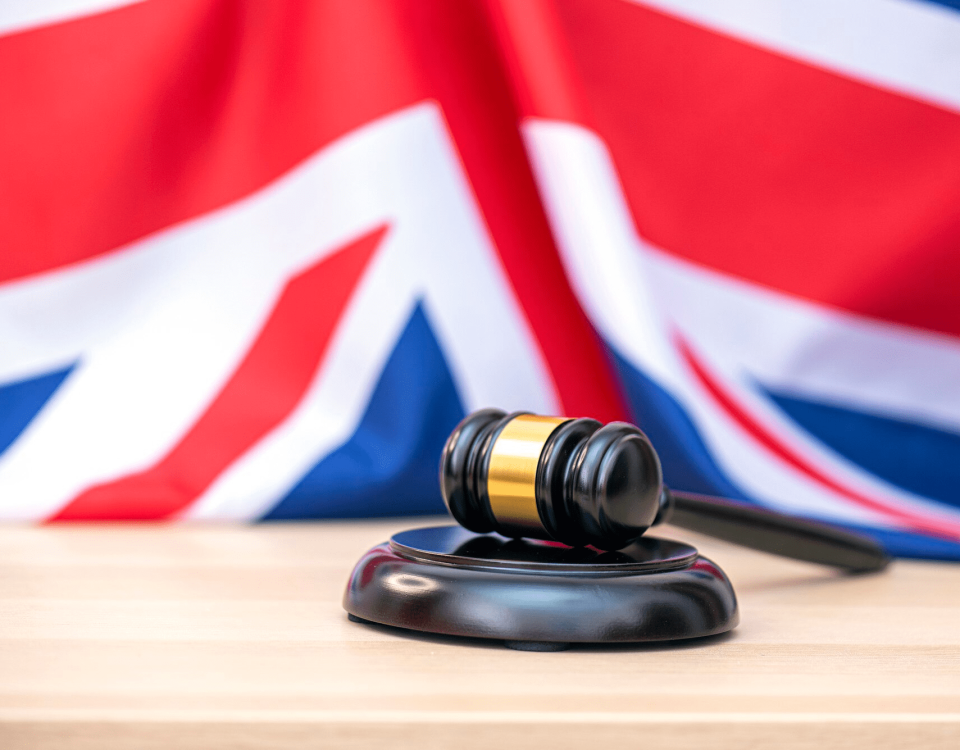Tackling non-compliance within the umbrella sector has always been a hot topic and with the number of fraudulent umbrella companies currently at an all-time high, it’s as pressing a conversation as ever.
Earlier this month, the government outlined new measures that will affect how agencies work with umbrella companies in the not-too-distant future. In preparation for the upcoming changes, we’ve put together this guide so that you can be brought up to speed about your responsibilities and how to ensure compliance for both your business and your workers.
Government Guidelines on Non-Compliant Umbrella Companies
In November 2023, the government published guidelines which laid out the responsibilities of employment businesses working with umbrella companies. As of 3rd December 2024, these guidelines have been updated. New changes introduced are in line with the government’s crackdown on non-compliance in the umbrella sector.
Crucially, there has been a greater focus placed on the agency closest to the client in the supply chain, meaning that agencies themselves are to be responsible for PAYE and NI liability. In order to protect yourself from these liabilities, it’s imperative you familiarise yourself with the umbrella companies you choose to work with and ensure they are compliant before partnering with them.
Along with reinforcing the expectation for agencies to hold themselves accountable when it comes to upholding compliance checks, the new guidance has been very clear on the penalties awaiting agencies who are negligent in this area. The main takeaway here is that claiming lack of awareness or ignorance of an umbrella company’s fraudulent activity will not get you very far. Instead of being reactive, agencies are urged to be pro-active and carry out due diligence before working with an umbrella provider.
If HMRC finds you have been involved in any non-compliant supply chains, they are within their rights to take the following actions:
- Prosecute you for failure to prevent criminal facilitation of tax evasion in the supply chain.
- Deny you the right to recover VAT input tax and issues penalties if you knew or should have known that you were connected to VAT fraud.
- Issue you with an enabler’s penalty if you use an umbrella company that is operating tax avoidance or has been involved in designing, marketing, or facilitating another person to avoid tax.
The Employment Agency Standards Inspectorate also has the right to close businesses entirely or ban directors from running their employment business. For a full breakdown of penalties involved, the risks of engaging with non-compliant supply chains, and how to avoid doing so, you can consult HMRC’s website.
What is the Agency’s Responsibility?
While the new guidance doesn’t come into effect until April 2026, there’s no time like the present to start implementing the upcoming changes. Aside from preparing you for the new normal, the guidelines are a set of best practice rules that are designed to protect both your business and your contractors. The last thing you want is to be taken advantage of by fraudulent umbrellas because it is you who will pay the price…both figuratively and literally!
- Here’s a few things you can do to protect your agency from non-compliant umbrella companies:
- Take time to understand your supply chains
- Consult HMRC’s list of believed tax avoidance schemes to be avoided
- Make a Preferred Suppliers List (PSL) that you regularly review and update
- Carry out due diligence on companies you work with. That includes taking time to understand how contractors are being paid and engaged
- Choose companies who are accredited by other bodies, e.g. FCSA
- Take immediate action if you spot non-compliance by reporting back to HMRC
With such severe consequences to mixing with fraudulent umbrellas, it’s more important than ever to remain vigilant and conduct thorough checks before choosing who to work with. Remember, you have the right to refuse to work with a certain umbrella company despite your contractor having chosen them as their preferred employer; the decision lies with you.
‘Work Out Pay’ Tool
Earlier this month, the government released a digital tool for agencies and umbrella employees to calculate gross and net pay from an umbrella company. As well as this, the new technology will list which deductions will be applied to this pay. It’s hoped that this tool will provide greater transparency on the payroll deductions that should be made by compliant umbrella firms, thereby making the non-compliant ones easier to spot.
There will likely be new iterations of this tool in coming months, and you can find out more about its use directly on HMRC’s website here.
Spotting Fraudulent Umbrella Companies
It’s all well and good to be told to remain vigilant, but how to spot a fraudulent umbrella when the very reason they manage to exist and evade HMRC is because they are infamously difficult to uncover. Here’s a few things you can look out for that could equate to suspicious activity:
- Low fees: if it looks too good to be true, it probably is. Many of these companies will position themselves as cheap and cheerful in comparison to competitors. More often than not, there’s actually lots of hidden costs which, when added together at the end, could end up costing you a whole lot more.
- Ambiguous payslips: they might differ in company name from employee to employee, or list unexpected deductions or extra hidden costs you weren’t made aware of earlier.
- High turnover & high number of workers: especially if a company is quite small but they have a surprisingly high number of contractors on their books. If it’s a mini umbrella, they will frequently move workers over from one company to another.
- Unusual name: fraudulent companies could be changing their name frequently to minimise the risk of being discovered by HMRC and deregistered. As a result, the company name might not accurately describe what the company does.
- Foreign nationals listed as directors and offshore arrangements: this is normally a good indicator of a tax avoidance scheme being at play.
- Missing accreditations: having little to recommend the company in the way of industry experts or positive reviews is a bad sign. They may also claim to be approved by HMRC – this would be a false claim seeing as HMRC does not approve umbrella companies at all.
This is just a handful of ways you can spot umbrella companies who operate illegally, but there’s more telltale signs out there that exist. It’s important to remember that a compliant umbrella company will always be transparent with you. If you’re left feeling confused about fees, unclear on their exact offering, or struggle to contact someone in the organisation for answers, it may be best to steer clear of them. A trustworthy umbrella provider will never shy away from transparency and reassuring you about their commitment to operating compliantly.
Looking for more guidance on how to avoid fraudulent umbrella companies? Check out our recent blog here for more tips and advice.
Parasol, your trustworthy employment and payroll solutions provider
Here at Parasol, compliance is not just a word we band around without meaning, it’s a promise. It forms part of our core values and is built into everything we do. From being FCSA and Cyber Essentials PLUS accredited, to providing our employees with exclusive perks, such as up to £1,800 worth of savings through Parasol Rewards and access to MyMarketplace (a platform housing exclusive deals from favourite brands), we are an umbrella company that cares. You can count on us for expert support, reliable payments and, most importantly, full transparency. Don’t want to just take our word for it? Our 4.7* rating on Trustpilot speaks for itself, and that’s based off more than 4,300 reviews.
Get in Touch
Our dedicated team are always on hand to answer your queries and lay to rest any worries or confusion you might have. Whether you need to clarify something mentioned in this blog or simply want more details on how new government guidelines will affect your agency, get in touch with us today!












